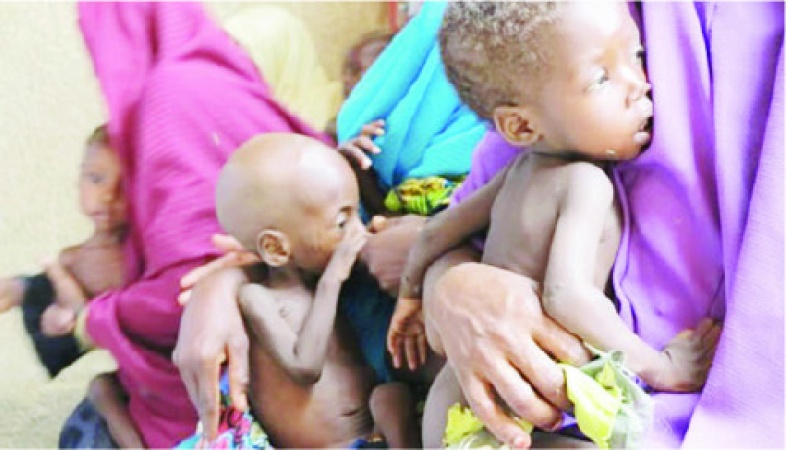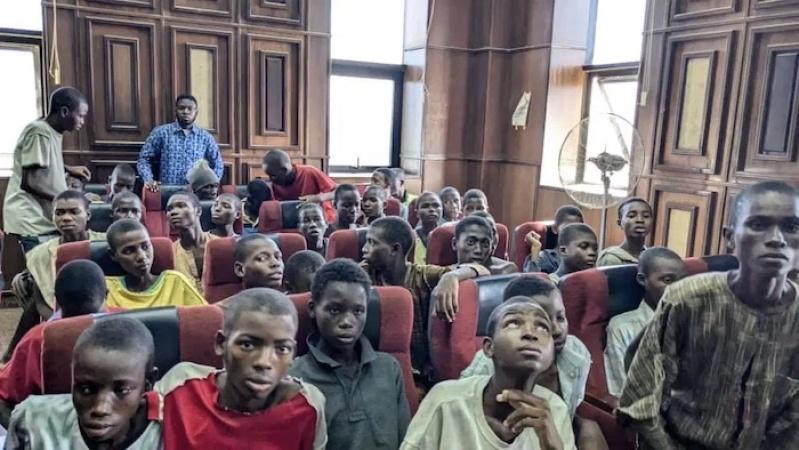40 million people face ‘desperate food shortages’ in West Africa — WFP

By HARRISON ARUBU
The World Food Programme (WFP) has warned that no fewer than 40 million people across West Africa face “desperate food shortages in coming months”.
Its spokesperson, Ms Elisabeth Byrs, gave the warning during a virtual news briefing on Tuesday.
Byrs said restrictions imposed by countries to curb the spread of the Coronavirus disease (COVID-19) were adding to people’s vulnerability to hunger.
She stated that populations displaced by armed conflict, and those that had endured climate change emergencies were at higher risks of exposure.
To avert the looming hunger crisis, the WFP spokesperson appealed for continued support from the international community for the agency’s global aid effort.
WFP, a United Nations agency, had earlier issued a similar warning about a “potentially massive spike in global food insecurity in East Africa” due to the pandemic.
“We must sustain our assistance across the region, especially in places such as Central Sahel, Central African Republic, Nigeria and Cameroon.
“An estimated 12 million children under five years old can be acutely malnourished in the lean season from June to August, up from 8.2 million in the same period last year.
“During the lean season in June and August, more than 21 million people across West Africa will struggle to feed themselves,” Byrs warned.
She said the Gambia and Republic of Benin were among the countries in need of intervention.
According to her, another 20 million people can struggle to feed themselves due to the socio-economic impact of COVID-19 in the next six months.
This, the official noted, would double the number of food-insecure populations to 43 million in the region.
President of the UN General Assembly, Amb. Tijani Muhammad-Bande, raised this concern during a virtual high-level meeting of the Heads of States and Governments of the Non-Aligned Movement on Monday.
Emphasising that many people around the world depended on agriculture for food and income, he urged the leaders to recommit to ending hunger and poverty.
Muhammad-Bande, who is Nigeria’s ambassador to the UN, warned against disruptions in food production and supply.
“We must do our best to ensure that agricultural workers are able to function with minimal disruption.
“I urge Your Excellencies to ensure increased investment in inclusive and resilient food systems that reflect our new reality and position us to better tackle the challenges they present.
“As we contend with the COVID-19 pandemic, we must re-commit to ending hunger and poverty,” he said.
The WFP spokesperson said the agency’s priority remained the most vulnerable individuals, including the urban poor living from “hand-to-mouth”.
Byrs underscored how COVID-19 travel restrictions had compromised the transport of supplies and the functioning of open-air markets that served most people, resulting in price increases in some countries.
WFP said in a statement that movement restrictions could also affect farmers as the planting season approached.
It warned that “an inadequate response” to current needs would put the future well-being of millions of people in the region at stake, particularly women and young children.
The agency said it could also lead to civil unrest in parts of the region already challenged by insecurity and violent extremism.
WFP said it was aiming to overcome the challenges in partnership with the authorities.
– NAN







